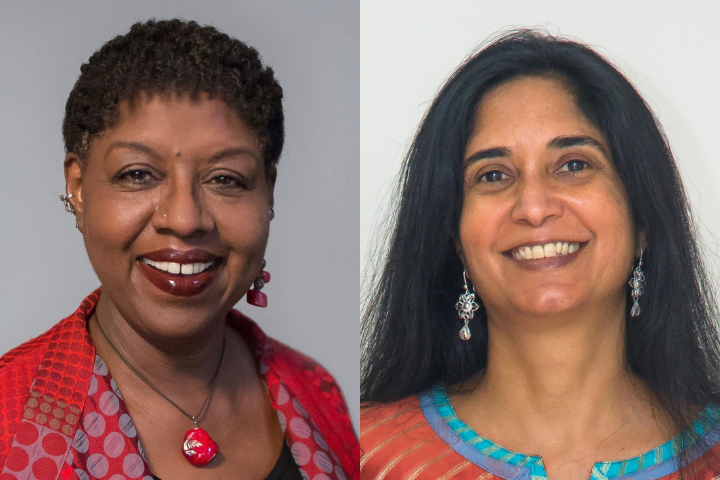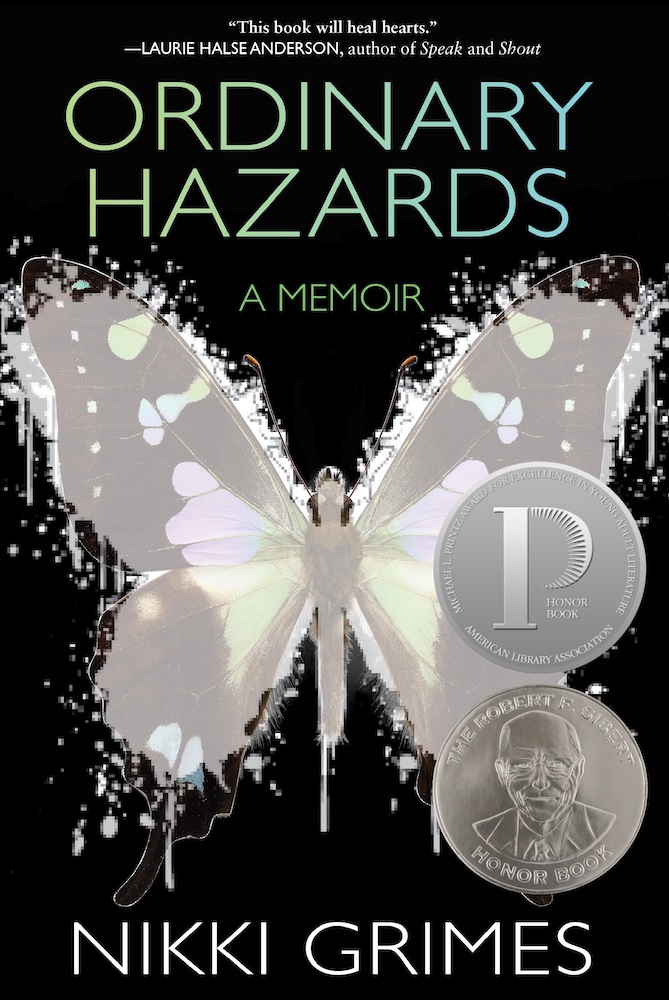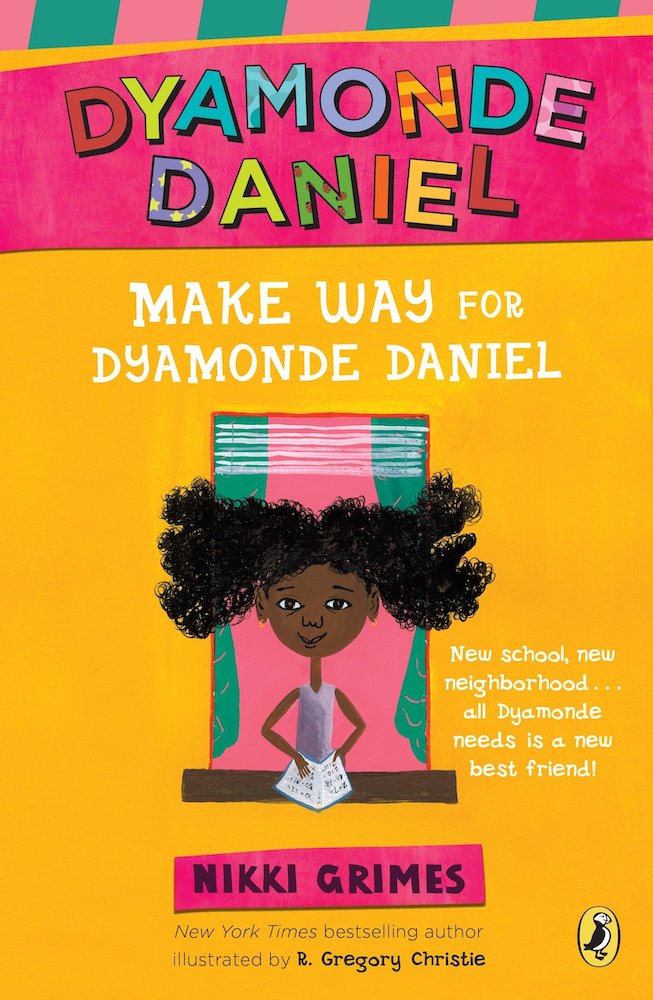PEN Pals: Nikki Grimes and Padma Venkatraman Discuss Challenged Books

Nikki Grimes (left, photo credit: Aaron Lemen) and Padma Venkatraman (right).
PEN America’s Children’s and Young Adult Books Committee (CYAB), a Members’ coalition of award-winning writers and illustrators and dedicated readers who meet monthly, is responding to recent efforts to ban books and intimidate teachers and librarians with a new conversation series called PEN Pals. This series of articles gives voice to the challenged creators of books for children and young adults through an exchange of nuanced conversations that illuminate today’s issues. We welcome you to read and discuss the content with your networks. We also encourage you to join PEN America and support free expression.
—Fatima Shaik, CYAB co-chair
 PADMA VENKATRAMAN: Earlier this year, I was saddened to hear your multiple award-winning title, Ordinary Hazards, had been challenged by a school district in Texas. A few days ago, I heard another of your books was under threat. How did you get to know the news?
PADMA VENKATRAMAN: Earlier this year, I was saddened to hear your multiple award-winning title, Ordinary Hazards, had been challenged by a school district in Texas. A few days ago, I heard another of your books was under threat. How did you get to know the news?
NIKKI GRIMES: My books have been banned or targeted for removal three times of which I’m aware. Each time, I learned about it on social media. Once I got over the shock of it, I alerted my publishers. Without social media, I’m not sure I’d ever have known at all!
When I came across a thread on Twitter indicating that Make Way for Dyamonde Daniel had been pulled from a school district in Morristown, NJ, the news gave me mental and emotional whiplash. The smart, sassy, math-loving, compassionate and loyal Dyamonde Daniel? How could anyone find this character or her story objectionable?
VENKATRAMAN: I can’t understand either, but do you have any inkling?
GRIMES: The explanation I got from the person who tweeted about the removal was that the character had been deemed a stereotypical Black girl, and they didn’t want their students reading about such a character. As the story evolved—as it did rapidly—I was told that the school district in question was looking to diversify the representation of Black girls in its book collection, and that Make Way for Dyamonde Daniel was pulled so that it could be studied as part of this discussion. However, I was never shown any documentation to prove the point, so who knows?
“Make Way for Dyamonde Daniel introduces a chapter book series centering Black characters, written when there was a dearth of such books. At the time, there was, in fact, a need for more chapter books for emerging readers in general. I created my series so that emerging Black readers would see themselves represented in that genre.”
—Nikki Grimes
The threat of a new ban was chilling, as it followed the removal of my award-winning memoir, Ordinary Hazards, from the curriculum in Leander, TX. It hardly helped that, in the midst of this discussion, an article in The Texas Tribune announced that Texas House Republican Matt Krouse has launched an investigation into 850 books “on race and sexuality” in local school districts—Ordinary Hazards among them. The battle has only just begun.
 VENKATRAMAN: A sobering thought. On a more positive note, please share with us the inspiration behind why you wrote Make Way for Dyamonde Daniel and your hopes for this book?
VENKATRAMAN: A sobering thought. On a more positive note, please share with us the inspiration behind why you wrote Make Way for Dyamonde Daniel and your hopes for this book?
GRIMES: Make Way for Dyamonde Daniel introduces a chapter book series centering Black characters, written when there was a dearth of such books. At the time, there was, in fact, a need for more chapter books for emerging readers in general. I created my series so that emerging Black readers would see themselves represented in that genre. The book also introduces a Black female character who loves mathematics. As those who have studied Black characters in children’s literature would note, this is anything but stereotypical. The very notion that anyone would label this character a stereotype is preposterous. It’s possible that pushback from teachers and librarians across the country, and from myself, can help to change the narrative.






